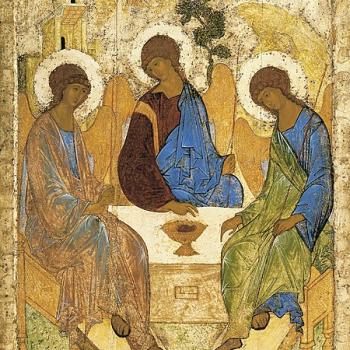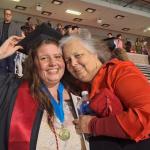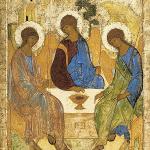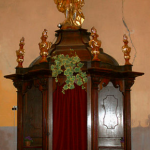Washington D.C., Aug 23, 2017 / 03:02 am (CNA/EWTN News).- Catholic bishops from around the country recently condemned the white nationalism at rallies in Charlottesville, Virginia. But what might be lesser known is that the Church has spoken out against racism through the centuries, and still calls for conversion from it. “If we want a different kind of country in the future, we need to start today with a conversion in our own hearts, and an insistence on the same in others,” Archbishop Charles Chaput of Philadelphia said after the Charlottesville rallies. White nationalists had held a “Unite the Right” rally in Charlottesville, Va. from Aug. 11-12, to protest the city's planned removal of a statue of Confederate General Robert E. Lee. White supremacists from various extremist groups like the Ku Klux Klan and neo-Nazis participated in torch-lit rallies on Friday night and a daytime rally on Saturday, chanting racist messages like “Jew will not replace us,” and “blood and soil,” a historically white supremacist slogan used by the Nazi Party in the days of Hitler. A diverse coalition of counter-protesters, from religious leaders to members of “Black Lives Matter” to the anarchist group Antifa, formed around the white supremacist rally. Violence broke out between the rally and the counter-protest, culminating with a 20 year-old man from Ohio driving a car into the counter-protest killing one woman and injuring 19. The man was eventually charged with second-degree murder. In the wake of the racist rally, Catholic bishops spoke out against violence but also specifically condemned racism, including a joint statement by Cardinal Daniel DiNardo of Galveston-Houston, president of the U.S. Conference of Catholic Bishops, and Bishop Frank Dewane of Venice, Fla., chair of the bishops' domestic justice and human development committee, condemning “the evil of racism, white supremacy and neo-nazism.” From the earliest days of the Church, Christian teaching has opposed the promotion of one person above another because of their genetic or ethnic background. In his letter to the Galatians, Saint Paul wrote that “through faith you are all children of God in Christ Jesus. For all of you who were baptized into Christ have clothed yourselves with Christ. There is neither Jew nor Greek, there is neither slave nor free person, there is not male and female; for you are all one in Christ Jesus (3:26-28).” As the Pontifical Council for Justice and Peace explained in its 1988 document on racism, “The Church and Racism: Towards a More Fraternal Society,” early in the history of the Church, distinctions were made between people on basis of religion, not race. That began to change with the discovery of the “New World,” the letter said, as nations colonizing the Americas tried to “justify” the killing and enslavement of indigenous peoples with a “racist theory.” Pope Eugene IV issued a papal bull in 1435, Sicut Dudum, condemning the enslavement of African Christians in the Canary Islands, a year after his bull Creator Omnium threatened excommunication for those enslaving Christians. Thirty years later, in Regimini Gregis, Pope Sixtus IV excommunicated those aiding in the transport of Christian slaves from Africa. Dominican Priest Bartolome de las Casas initially helped start the slave trade in the Spanish colonies to relieve the mistreatment of the Indians there in the 1500s, but later decried what he called the “spine-chilling barbarity” directed at indigenous persons by Spanish Conquistadors in his 1542 letter “A Short Account of the Destruction of the Indies.” He actively worked to stop the slave trade that he once helped. Pope Paul III, in his 1535 encyclical Sublimus Dei, issued a strong condemnation of theories that the indigenous peoples of the Americas were sub-human. He said that any argument that the natives were “created for our service” and were “incapable of receiving the Catholic Faith” was the work of “the enemy of the human race, who opposes all good needs in order to bring men to destruction.” He added that “we consider” that “the Indians are truly men and that they are not only capable of understanding the Catholic Faith but, according to our information, they desire exceedingly to receive it.” In 1839, Pope Gregory XVI condemned the slave trade once again and forbade Christians from partaking in it. He wrote that “we warn and adjure earnestly in the Lord faithful Christians of every condition that no one in the future dare to vex anyone, despoil him of his possessions, reduce to servitude, or lend aid and favor to those who give themselves up to these practices, or exercise that inhuman traffic by which the Blacks, as if they were not men but rather animals, having been brought into servitude, in no matter what way, are, without any distinction, in contempt of the rights of justice and humanity, bought, sold, and devoted sometimes to the hardest labor.” However, more sophisticated racist ideologies were hatched beginning in the 18th century, the 1988 Vatican letter explained. These theories tried to base racial superiority in science. Yet as white nationalism and other racist ideologies became the source of political and moral disagreement in societies throughout the world, the Popes and the Vatican continued to condemn racial discrimination and racist ideologies. In the 1937 encyclical Mit Brennender Sorge, Pope Pius XI condemned the Nazi government and its “so-called myth of race and blood.” “Whoever exalts race, or the people, or the State, or a particular form of State, or the depositories of power, or any other fundamental value of the human community – however necessary and honorable be their function in worldly things – whoever raises these notions above their standard value and divinizes them to an idolatrous level, distorts and perverts an order of the world planned and created by God; he is far from the true faith in God and from the concept of life which that faith upholds,” Pope Pius XI wrote. He also called out the creation of a state that defines itself “within the narrow limits of a single race,” and said that only “superficial minds” could fall into believing such concepts. His successor Pius XII, in his 1939 encyclical Summi Pontificatus, decried these racial ideologies as one of the “errors which derive from the poisoned source of religious and moral agnosticism.” “The first of these pernicious errors, widespread today, is the forgetfulness of that law of human solidarity and charity which is dictated and imposed by our common origin and by the equality of rational nature in all men, to whatever people they belong, and by the redeeming Sacrifice offered by Jesus Christ on the Altar of the Cross to His Heavenly Father on behalf of sinful mankind,” he said. Later popes, from Bl. Pope Paul VI to St. Pope John Paul II to the current Pope Francis, have all decried racial discrimination, especially discrimination against one’s fellow countrymen. The Pontifical Council for Justice and Peace document of 1988 stated that “racism and racist acts must be condemned.” “Respect for every person and every race is respect for basic rights, dignity and fundamental equality,” the document stated. It clarified that this respect for all races “does not mean erasing cultural differences,” but that “it is important to educate to a positive appreciation of the complementary diversity of peoples.” The document also pointed to the anti-Semitism that led to the horrors of the Holocaust, and the necessity for a moral call from the Church against racism even in areas with laws against racial discrimination. The U.S. Bishops have issued statements against the racism found in many areas of American society, both overt and structural remnants from the era of slavery and of Jim Crow and segregation. In their 1979 document “Brothers and Sisters to Us,” the bishops decried racism not only as the sin “that says some human beings are inherently superior and others essentially inferior because of race,” but as a sin that denies “the truth of the dignity of each human being revealed by the mystery of the Incarnation.” Individual bishops and groups of bishops have also written periodically in response to events motivated by racism or revealing the deep racial wounds still within our society. In response to the events last weekend, Bishops around the country – including the U.S. Bishops' conference as a group – decried the use of Nazi and racist symbolism. “Racism is a poison of the soul,” said Archbishop Charles Chaput, of Philadelphia in response to the rally. “It’s the ugly, original sin of our country, an illness that has never fully healed.” Read more



















